Iran To Change Content Of Language Books Per Khamenei’s Views
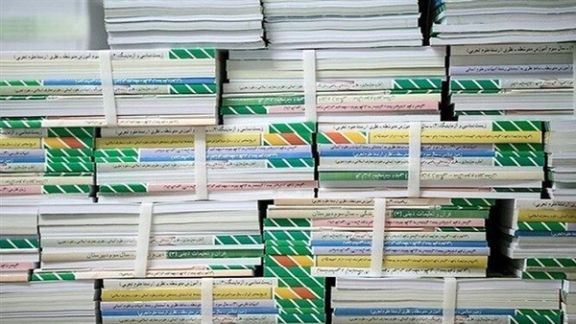
Iran’s deputy minister of education says based on the views of the Supreme Leader Ali Khamenei changes will be made in the content of foreign language textbooks.

Iran’s deputy minister of education says based on the views of the Supreme Leader Ali Khamenei changes will be made in the content of foreign language textbooks.
In an interview with local media on Sunday, Ahmad Mahmoudzadeh called the decision "organizing the language schools", adding that Ali Khamenei has criticized the "content of language books" and demanded a revision.
Regarding Khamenei's criticism, he said "The conversation, pictures or anything else that is presented must be completely in conformity with the Iranian Islamic culture and customs."
Changing the content of textbooks and aligning them with regime ideology, upon Khamenei orders, has been implemented in the past few years, but this is the first time such changes will be applied to textbooks in private language schools.
Mahmoudzadeh also stated that based on Khamenei's preference, the "monopoly of the English language" in the curriculum of schools is supposed to be broken.
In recent years, Khamenei has taken a position against teaching English in Iranian schools.
In 2016, Ali Khamenei harshly criticized the promotion of learning English in Iranian educational institutions. "Now, we have reached a point where teaching the English language is extended to kindergartens and daycares, as well," he retorted.
Immediately after Khamenei's remarks, the Ministry of Education banned English teaching in primary schools.
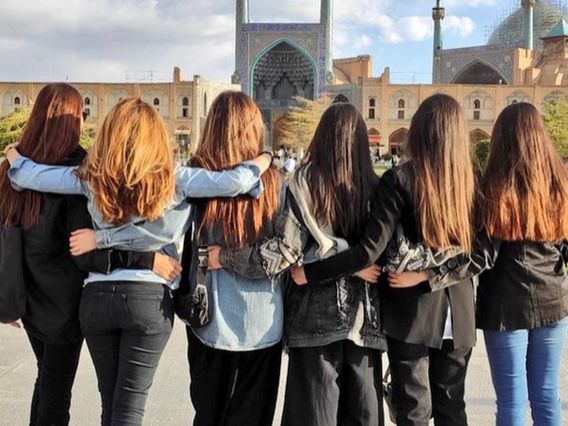
A reformist politician says the protests against the Islamic Republic will become stronger with every atrocity the regime commits against the protesters.
Mohsen Mirdamadi said on Sunday that "If something similar to Mehsa Amini's death (which sparked nationwide antiregime protests) happens once again, there is still this hidden potential in society to rise again and become the source of widespread protests."
In an opinion piece on Tehran's leading reformist daily Etemad, Mirdamadi said, "Experience has shown that as time passes, the protests will be stronger than in previous periods."
The former member of the parliament emphasized that it is not possible to solve Iran's current crises and challenges with "superficial reforms" and that "serious changes need to take place" without elaborating on the details of the changes.
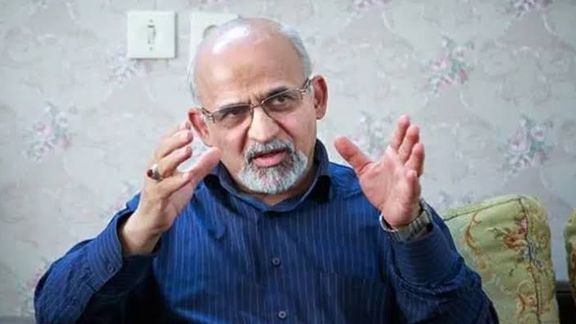
Referring to the ‘women, life, liberty’ movement, he said that these protests "were a spark to the gunpowder of demands” of the people, suggesting that people had been fed up with the strict rules that enforced by the Islamic Republic. “Nothing has happened that we can say grievances have been resolved,” he said, referring to the popular protests that have led to the death of over 500 protesters in the hands of the regime’s security forces.
He also decried the Islamic Republic for not taking into account the opinions of the general public, saying that the regime has shifted its focus from peoples’ vote to a military rule.
His remarks came as the Islamic Republic is suppressing any voice of dissent and has moved to deprive women, who fail to comply to its strict hijab regulations, from public services.
Mohsen Borhani, a professor of criminal law at Tehran university, who was recently sacked for criticizing the regime after the execution of four young protesters, said in a tweet on Sunday that "Preventing women from entering public places or not providing services at airports, etc., on the pretext of not observing hijab, has no legal bases and is a completely illegal action."
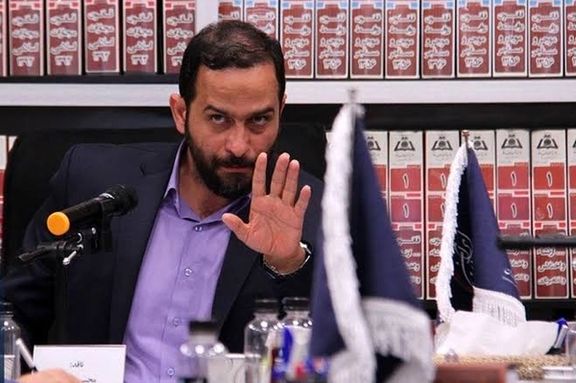
Attacking people and their property or violating their dignity and rights are criminal acts and victims have the right to self-defense according to Article 156 of the Islamic Penal Code of Iran, Borhani wrote. He was referring to a viral video that showed that flight ticket issuing agents at Shiraz airport do not provide services to women without the mandatory hijab.
Conflicts between vigilantes and women defying hijab in public occur almost daily now while authorities including the President insist on enforcement of rules. As regime supporters take the law into their own hands to combat the hijab rebellion, a man emptying a yogurt bucket onto the heads of two uncovered women has caused outrage in Iran.
Iran’s Chief Justice Gholamhossein Mohseni Ejei this week reiterated threats against those daring to uncover. He warned women will be “prosecuted without mercy,” he said, without saying what the punishment entails.
The conflict over the observance of the Islamic Republic’s strict interpretation of the dress code – or hijab – has been a contentious issue in the past few weeks, leading to tensions that can suddenly blow into confrontations and protests.
Following the death in custody of Mahsa Amini, arrested for not wearing the hijab in a proper manner, women are increasingly appearing in public and on social media without the headscarf, with many burning it in public protest. Defiance of hijab rules as a form of civil disobedience has hugely grown across the country after her death. Many believe that there is no sign ‘hijabless’ women will allow to be bullied again into wearing the hijab.
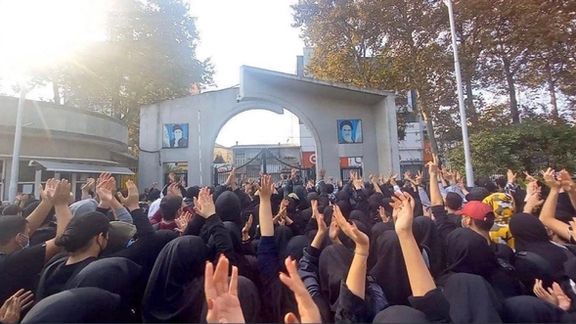
Iran’s health and education ministries say their educational centers will not be providing services to students who do not observe the mandatory hijab.
In a message to congratulate the opening of universities in the new Iranian year on Monday, Deputy Health Minister Abbas Shirojan thanked the students who comply with dress code, and announced the universities of the health ministry will not provide services to students without hijab.
Meanwhile, the education ministry in a separate statement announced that women who do not comply with the compulsory hijab will not be allowed to attend classes.
During the nationwide protests in Iran following the death in custody of Mahsa Amini, universities have been the hotbed of protests with hundreds of students were arrested, in addition to targeted poisoning attacks on girls’ schools.
As the regime fights a losing battle against the wave of women participating in a nationwide hijab rebellion, hardliner regime supporters vow more strict measures.
In recent days, dozens of shops and malls where Iranian women continue to flout the regime’s mandatory hijab rules have been closed down across the country with dozens more women arrested.
In the past four decades women generally demonstrated their opposition to compulsory hijab by making their headscarves smaller.
Defiance of hijab rules as a form of civil disobedience ha grown across the country after the death the 22-year-old Mahsa Amini in custody of morality police in mid-September.
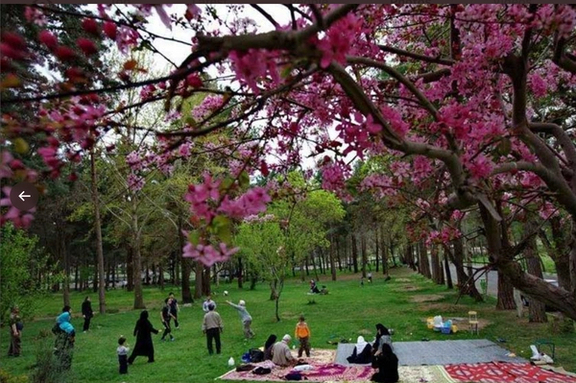
Iranian families celebrated the ancient Spring Picnic Day (Sizdabedar) on Sunday despite the government’s closure of some parks and Ramadhan restrictions.
“Out of respect for the month of Ramadan,” authorities closed parks and blocked roads to northern forests and other locations where people traditionally picnic on this day but videos posted on social media show huge crowds singing and dancing despite the restrictions and even chasing away the government-sponsored vigilantes from their picnic grounds.
In the city of Qazvin, capital of Qazvin province, for instance, the municipality said parks were closed until five in the afternoon, an hour and a half before iftar (the end of fasting day) “for the comfort of citizens and respect for Ramadhan.”
Armed police attacking merrymaking people with tear gas in northern Iran.
Parks were also closed in several other cities including the religious city of Qom and Rasht in Gilan province where many have flocked for the holidays. Even some museums and sightseeing locations were closed for the day in some places such as Kermanshah in western Iran.
Such restrictions did very little to stop people from gathering and dancing wherever they could but at least in one place, on the road to the touristic village of Masouleh in the forested northern mountains of the Caspian Sea region, armed police tried to disperse the merrymaking crowds with tear gas. Social media users said in Tehran the Basij militia tried to prevent people from entering some parks, but the crowds were too big and they had to give way.
This year, many women have taken the opportunity of the secular Nowrouz holiday season to demonstrate their opposition to the government by flouting their hijab and dancing in public as civil disobedience.
Authorities, who have been rattled by mass defiance, responded by shutting down businesses, hotels, cafes and restaurants where “hijabless” women were offered services or sang and danced, often alongside men. In some cases, such as at Kermanshah’s Taq Bostan historical site, authorities prevented “hijabless” women from entering.
People including “hijabless” women celebrating Sidebedar in Rasht in northern Iran
The 13th day of the holidays is called Sizdebedar, or more correctly Sizdah be Dar (casting off [the inauspiciousness] of thirteen].
The regime reluctantly tolerates some of the country’s ancient festivals such as the New Year (Nowruz) and other occasions such as Charshanbeh Souri (Last Tuesday of the old year) and Sizdebedar due to their extreme popularity. Nevertheless, after the Islamic Revolution of 1979 it renamed Sizdebedar as Nature Day because the religious establishment particularly opposed the “superstition” implied by it.
People chasing away government sponsored vigilantes in Anzali from their picnic site.
People should not remain home on this day to avoid the inauspiciousness of the number thirteen according to a tradition of obscure origins. So, they will go out and picnic wherever they can with food and music and dancing.
But this year, the Iranian New Year holidays (Nowrouz) coincided with the Islamic fasting month of Ramadan.
In Iran and some other Islamic countries eating, drinking, and smoking in public are strictly banned during the fasting month. Many Iranians who fast during Ramadan, and many others who do not, nevertheless, believe that such restrictions are pointless and even unfair.

The Israeli army said it downed an unidentified aircraft on Sunday that appeared to have crossed into its territory from Syria, as tensions simmer in the region.
The Israel Defense Forces (IDF) said in a statement the aircraft it downed did not pose a threat at any stage.
Israel has for years carried out attacks against what it has described as Iran-linked targets in Syria. According to the Syrian Observatory for Human Rights, Israel conducted six strikes in Syrian territory in March alone.
Israel conducted three missile and air strikes from Thursday to Sunday on targets in Syria housing Iranian IRGC and proxy military forces.
Iran announced that two of its "military advisers" in Syria were killed in these attacks and warned that it would retaliate.
Israel has been regularly attacking targets in Syria since 2017 to weaken Iran's attempts to strengthen its military presence in the war-torn country and build up a threat on Israel's northern borders.
Iran has considerable drone capabilities that it has used against US bases in Syria as recently as last month, killing a US contractor and injuring at least eight US servicemen.
Iran's government spokesman, Ali Bahadori-Jahromi, tweeted Sunday that Israel's "terrorist acts will not remain unanswered."
Iran had also called on Palestinian militants to "use the opportunity" of internal political tensions in Israel to harm the "Zionist enemy."
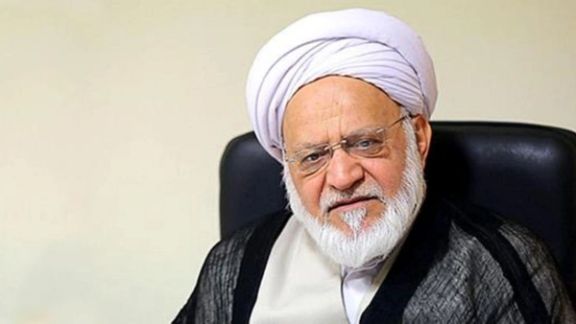
A leading conservative cleric and regime insider, Gholamreza Mesbahi Moghaddam, has said that without talks with the West the situation for Iran will remain difficult.
A news website in Tehran quoted Moghaddam, a member of several key government bodies, as saying, “Our economic conditions are unfortunately under the influence of increasing American sanctions and pressures, especially on our currency, leading to its depreciation.”
Iran’s currency has halved in value since mid-2022 reaching unprecedented lows in the past six months, fueling more inflation that can lead to more antigovernment protests. On Sunday the rial was trading at 535,000 to the US dollar, while before the United States imposed sanctions in 2018, it was trading at around 35,000.
Moghaddam is one of the few clerics who studied economics said that in addition to sanctions, psychological factors also hurt the value of the rial. He argued that with nuclear negotiations with the West at a standstill and recent unrest in Iran, confidence in the economy and the currency have weakened.
The latest point-to-point inflation rate has reached 64 percent, and some experts are warning of hyper-inflation.
The influential cleric tried to sound optimistic by praising some recent government measures adopted to help the rial, but the currency has a downward trajectory as long as Iran is unable to export sufficient oil and balance its budget.
Despite the economic crisis, Iran’s foreign and nuclear policies that are controlled by Supreme Leader Ali Khamenei have not changed so far to ease tensions with the West.